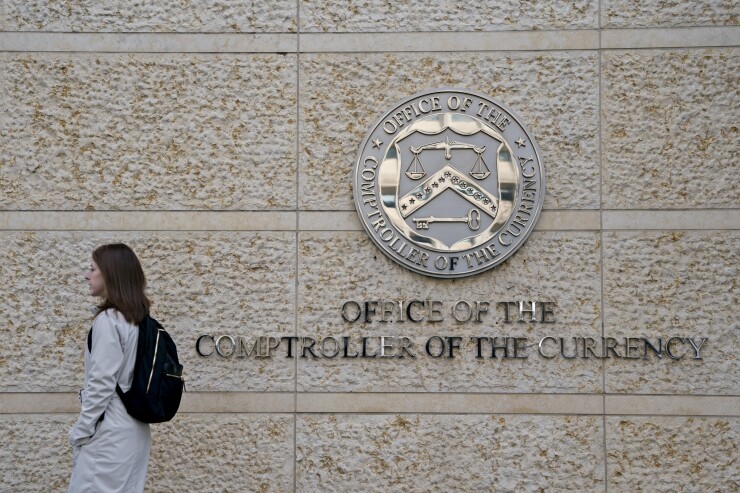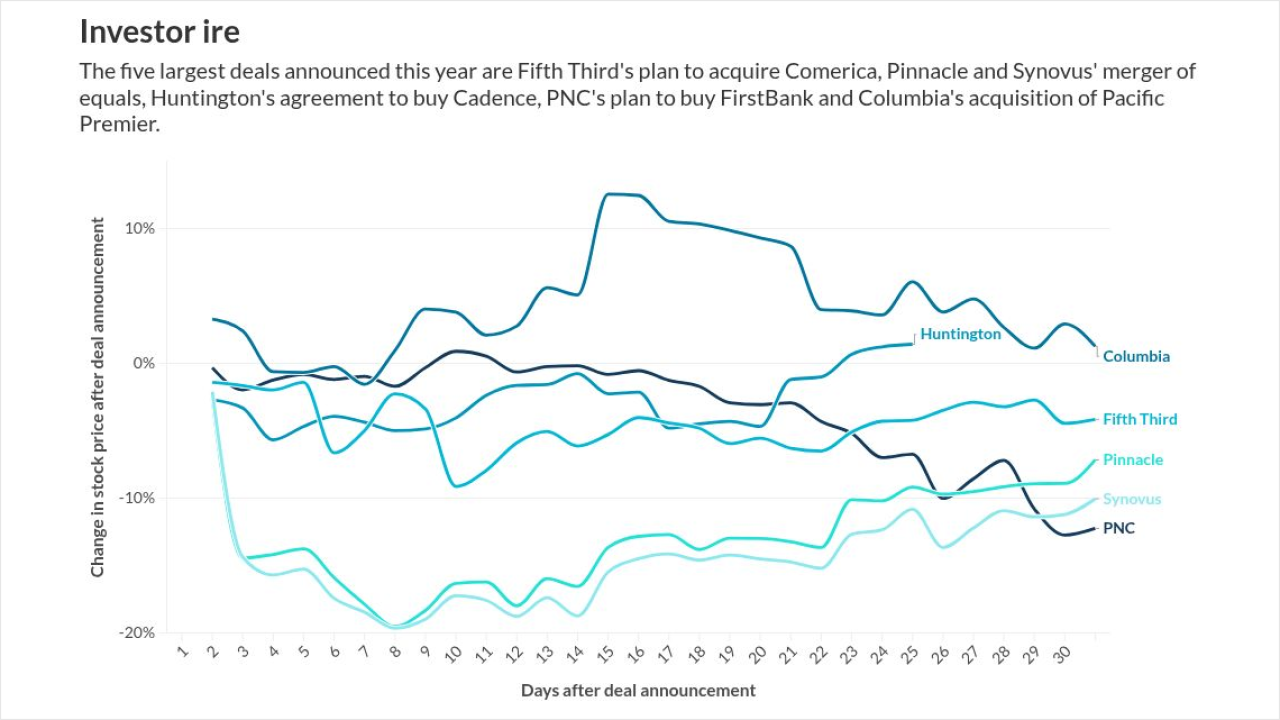WASHINGTON — The Office of the Comptroller of the Currency proposed steps Monday for banks to be able to work around a 2015 court ruling that had restricted their ability to sell off loans.
The 2nd U.S. Circuit Court of Appeals' decision four years ago in Madden v. Midland Funding posed new legal challenges for institutions transferring debts to third parties. The court ruled that a usury law in the buyer's state can apply.
To bypass those interest rate caps, the OCC is proposing to clarify that when a national bank sells a loan, the same interest rate can survive to both ends of the transaction. The Federal Deposit Insurance Corp. is expected to propose a similar fix in a board meeting on Tuesday.
“Recent developments have created uncertainty about the ongoing validity of the interest term after a bank sells, assigns, or otherwise transfers a loan,” the OCC's proposal says. “After considering the principles discussed below, the OCC has concluded that when a bank sells, assigns, or otherwise transfers a loan, interest permissible prior to the transfer continues to be permissible following the transfer.”

Several industry representatives and legal experts welcomed the OCC's move, saying the Madden court ruling was a barrier to partnerships between banks and nonbank fintech companies.
“It just made things extremely complicated. … You always had that Madden risk,” said Kevin Petrasic, a partner at Davis Wright Tremaine. The OCC proposal “does have a certain degree of reinstating stability for the process.”
But consumer advocates said the proposal sanctions deals with unregulated nonbanks in order to avoid borrower protections. They warned that loan purchasers will pursue so-called rent-a-bank models.
"The OCC just declared open season on consumers for unlicensed, subprime lenders,” said Adam Levitin, a Georgetown University law professor.
He said he expected the proposal to get challenged in court.
“The proposed rule will allow unlicensed subprime lenders to do business in every state, no matter of the state’s rate caps, as long as they can find a passive bank partner that will rent out its charter privileges,” Levitin said.
Until the Madden decision, financial institutions followed the “valid when made” doctrine, which provides that if a loan’s interest rate is valid in the state where it was originated, that loan continues to be valid when transferred to a party in another state.
But the 2nd Circuit ruling in 2015 essentially cast doubt on the validity of that doctrine.
Nathaniel Hoopes, executive director of the Marketplace Lending Association, said the ruling hurt credit in areas covered by the appeals court.
“Following the Madden decision, academic research has shown that underserved communities in New York and the other 2nd Circuit states have suffered both a decline in access to credit and a spike in personal bankruptcies; these proposed rules from the OCC and FDIC are a key step towards ending the consumer harm and ensuring that banks can build responsible fintech partnerships,” Hoopes said.
He said a companion proposal by the FDIC is necessary so community banks can benefit from fintech partnerships too.
“The community banks and the regional and smaller regional banks … they’ve lost a lot of the share of the personal loan market,” Hoopes said. “There’s a lot of opportunity for partnerships to allow smaller banks to get personal loans to their own customers.”
The OCC’s proposal cites federal law establishing that banks can enter into loan contracts, charge interest at the maximum rate permitted in the state where it is located, and subsequently assign the loan.
“A bank’s well-established authority to assign a loan may be unduly curtailed if the bank cannot be certain that interest permissible prior to the assignment will remain permissible afterwards,” the agency's notice of proposed rulemaking says.
John Kromer, a partner at Buckley who advises financial services firms, said the proposal is a good first step in addressing the uncertainty for fintech firms after the Madden ruling.
“Companies that rely on the secondary market to purchase loans had concerns raised about loans originating in the 2nd Circuit,” Kromer said. “This [proposed] rulemaking would go a long way in addressing those concerns and potentially ease pressure in the markets in those states.”
Brian Knight, director of innovation and governance at George Mason University’s Mercatus Center, said the rulemaking is a “bandaid” for fintech lenders, putting them on a more level playing field with banks.
“I personally don’t think that that regulatory advantage [for banks] is justified and I think that nonbanks should be able to lend ... on parity with banks,” he said.
But in an email to reporters, a spokesperson for the Center for Responsible Lending said the OCC policy could “bless ‘rent-a-bank’ partnerships."
"Allowing online predatory lenders to evade state interest rate caps will put people in debt and go against what the public wants,” the spokesperson said, adding that the proposal could “undercut” a recent California law imposing a rate cap of about 36% on loans of $2,500 to $10,000.
The OCC’s proposal comes two months after
Stakeholders have 60 days to comment after the proposal's publication in the Federal Register.





